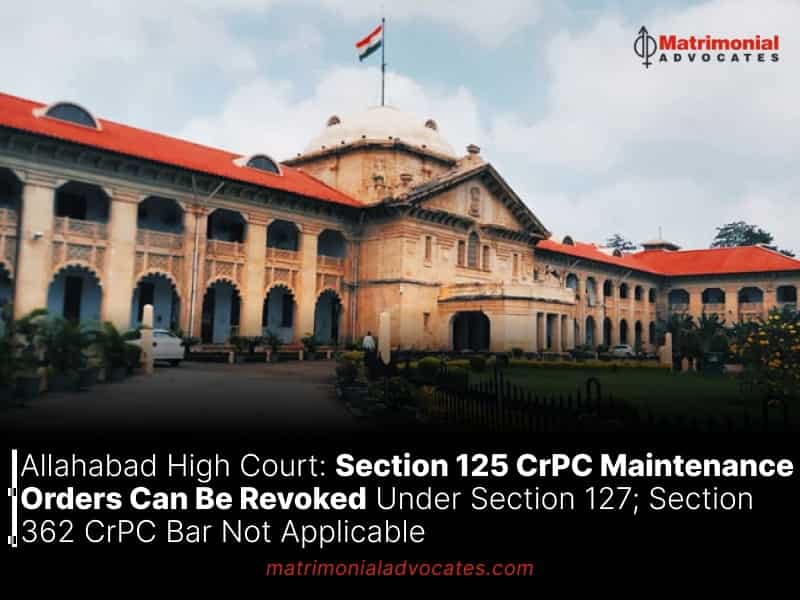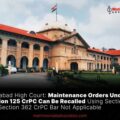
The Allahabad High Court has determined that orders issued under Section 125 of the Criminal Procedure Code (CrPC), whether they are final or interim, are subject to recall or modification under Section 127 of the same code. As a result, the restriction imposed by Section 362 of the CrPC does not apply in such instances.
Justice Arun Kumar Singh Deshwal, upon examining Section 362 of the CrPC, observed that if any provision within the CrPC permits the reconsideration or alteration of a judgment or final order, the restriction under Section 362 of the CrPC does not come into play. This principle is specifically relevant to Section 125 of the CrPC.
For context, Section 362 of the CrPC stipulates that a final judgment or order cannot be reconsidered or reviewed after it has been signed, unless otherwise provided by the code or another law.
These findings were articulated in the context of rejecting a husband’s plea challenging a family court ruling. The family court had granted a recall application filed by his wife and daughter (referred to as opposite parties 2 and 3).
The recall application pertained to the dismissal of an application due to lack of prosecution, filed by the opposite parties seeking maintenance under Section 125 of the CrPC.
In its contested ruling, the lower court observed that in proceedings under Section 125 of the CrPC, if a case is dismissed for lack of prosecution, it can be reconsidered under Section 126(3) of the CrPC, granting the court authority to issue an appropriate order as deemed fit.
Before the High Court, the applicant’s legal representative argued that the recall order was erroneous, asserting that once an application under Section 125 of the CrPC is dismissed for lack of prosecution, it cannot be reconsidered or modified due to the restriction outlined in Section 362 of the CrPC.
Conversely, the legal representative for the opposite parties argued that Section 362 of the CrPC includes exemptions, and Section 127 of the CrPC enables the court to amend or modify any order issued under Section 125 of the CrPC.
In its ruling, the single judge underscored that Section 362 of the CrPC delineates certain exemptions. Regarding orders issued under Section 125 of the CrPC, a magistrate possesses the authority under Section 126(3) of the CrPC to issue just and appropriate orders.
The Court further highlighted that Section 127 of the CrPC permits the court that issued a maintenance order under Section 125 of the CrPC, including interim maintenance orders, to effect necessary alterations.
“In Section 125 CrPC using of expression ‘as the Magistrate from time to time direct’, the use of expression from time to time has purpose and meaning. It clearly contemplates that the order passed u/s 125(1) CrPC, the Magistrate may have to exercise jurisdiction from time to time. The above legislative scheme indicates that Magistrate does not become functus officio after passing of the order u/s 125 CrPC,” the Court added.
In light of this, the Court expressly confirmed that any order issued under Section 125 of the CrPC, regardless of being final or interim, can be subject to revision or modification under Section 127 of the CrPC. Hence, the limitation outlined in Section 362 of the CrPC does not hold sway in such scenarios.





